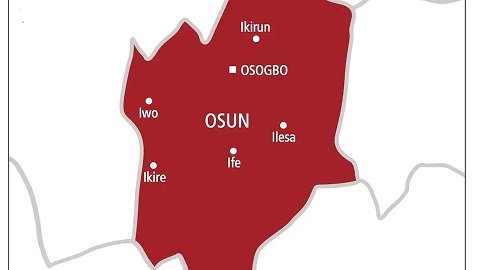[ad_1]
On August 30, 2021, the National Judicial Council, chaired by then-Chief Justice of Nigeria, Tanko Muhammad, unprecedentedly summoned Chief Judges of six states to Abuja over embarrassing conflicting orders issued by courts of coordinate jurisdiction in their divisions in some political matters. The affected CJs were those of Rivers, Kebbi, Cross River, Anambra, Jigawa and Imo states.
A week after, on September 7, now joined by the CJ of the Federal Capital Territory (FCT), the seven divisional helmsmen were interrogated by Tanko at a tension-session in Abuja.
Spokesperson of the Council, Soji Oye, captured the extraordinary meeting thus; “The meeting which commenced at 11am and lasted till 5:30pm, began with a one-on-one interaction with the CJs. Each of the CJs was separately quizzed personally by the CJN for over an hour, before later reading a riot act in a joint session with all of them.”
The statement which deliberately described the emotion of Tanko at the session as “visibly angry”, went ahead to quote him as saying that, “a damage to one jurisdiction is a damage to all. Your job as Heads of Court is a sacred one, and it, therefore, includes you vicariously taking the sins of others. There must be an end to this nonsense. You shall henceforth take absolute charge in assigning cases or matters, especially political, personally.”
Tanko to his credit didn’t stop at verbal warning to the affected CJs. Apart from escalating the warning to all the 37CJs, 36 states and FCT, he also caused a Policy Guidelines on election cases to be issued to all judicial officers nationwide.
Another statement from the spokesperson of the Council, dated May 11, 2022, read in part, “Concerned by the multiplicity of litigation of political suits at different courts of coordinate jurisdiction across the nation, resulting in conflicting orders on the same issues and facts, the National Judicial Council at its 98th Meeting of 10 and 11 May, 2022 under the Chairmanship of the Chief Justice of Nigeria, Honourable Dr Justice I. T. Muhammad, CFR, issued Policy Directions in order to remedy the situation.”
The Council went ahead to issue a lengthy how-to guidelines on election matters in regular courts, to avoid judicial officers, driving the system back into the repugnance of the months before, when politicians were accurately predicting, well ahead of time, orders that some courts would make concerning them.
The policy, which will qualify as Tanko’s most profound gift to the Judiciary before his fall, is now fully operational nationwide, but limited to pre-election matters.
For election petition tribunals to also not fall into the mess of conflicting rulings, the President of the Court of Appeal, Monica Dongban-Mensem, compiled a Case Management System, the document she said would serve as an additional guide, to the tribunal members.
The Ekiti Election Petition Tribunal which tried the petition of Segun Oni of the Social Democratic Party (SDP) against the electoral victory of Governor Abiodun Oyebanji of the All Progressives Congress is set to deliver its ruling and expectedly, there are shifting emotions and reactions as different tales roll through the information highway. The assignment of the Tribunal is the first major test on compliance to the Guidelines, provided by the leadership of the Judiciary, to ensure that there are no embarrassing diversions from settled principles of law and precedents, especially as settled by the Supreme Court, the highest in the land.
Not surprising, the rumour mill is agog as the ruling is awaited. There is talk about a certain N3 billion being mobilised to sway the outcome of the petition, in a certain direction, to benefit one of the parties, in the case. Nothing has been proved but they say, there is usually no smoke without a fire, though technology of simulation can disprove the saying.
Without necessarily impugning the integrity of the members of Ekiti Election Tribunal, it is a notorious fact that the careers of tens of judicial officers had been terminated over election petition corruption, since the return of civil rule in 1999. On February 21, 2013, then CJN and chair of the National Judicial Council, Mariam Aloma Mukhtar fired Justices Thomas Naron and Charles Archibong over the ruling delivered at the first Election Petition Tribunal in Osun State after the 2007 poll.
On September 30, 2016, the Council, chaired by then-CJN, Mahmud Mohammed, fired the Presiding Justice of the Court of Appeal, Ilorin Division, Mohammed Ladan for fraudulent conduct in determining an appeal arising from election petition.
NJC, through Oye, noted that “during deliberations, Council found as follows; that there was evidence that the Petitioner (one Nnamdi Iro Oji) met with Hon. Justice Mohammed Ladan Tsamiya thrice, in his residence in Sokoto, Gwarinpa, Abuja and Owerri where on each occasion, he demanded from him, the sum of N200 million, to influence the Court of Appeal Panel in Owerri or risk losing the case”
These are recent developments which make the growing apprehension over the perceived delay in the delivery of the Ekiti judgement understandable. There is a notion that the longer the judgement takes to be delivered, the more the space being allowed lobbyists to put pressure on the Tribunal members.
While the truism of justice delayed is justice denied, makes quick resolution of all cases, (not only political) desirable, I personally feel that the ruling of an average court of record, should add some value to jurisprudential development in Nigeria, no matter how infinitesimal, which may require time and resources, to be compact.
ALSO READ FROM NIGERIAN TRIBUNE
At the same time, matters that are time-bound, like election petitions, should be resolved expeditiously, to allow enough time for appeal.
Disgraced former Enugu CJ, Innocent Umezulike was fired by NJC in 2016 for failing to deliver ruling in a matter 126 days after final addresses were adopted by parties, plus receiving a N10 million from Arthur Eze, a bizman who had two cases in the judge’s court. His saga reminds of the joke about those named Innocent not being innocent afterall, including Innocent Idibia, Nigeria’s famed Baby Papa.
Ekiti matter is broadly two constitutional issues which the Supreme Court recently resolved. There is no vote-recount or cancellation request. It is mainly to determine if the governor and his deputy were lawfully nominated and if the certificate saga of the deputy governor, should not dethrone her and her boss, like the fate suffered by APC in Bayelsa.
Since there are Supreme Court precedents, the outcome should be relatively easy to decide, except if the boast by a powerful personality in the state that the entire hearing was an entertainment, is actually factual.
At the swearing of Tribunal members for 2023 poll, CJN Ariwoola had said, “We are all humans, no doubt, but you display the humanism in you by doing those extraordinary things that people would ordinarily say you cannot do. That is what distinguishes those with integrity and passion for success from those with unenviable pedigrees and dysfunctional moral compasses.”
We wait.
[ad_2]








![government 2022 ASUU misery Independence celebration Tortoise, in-law Let’s start rebuilding When Rising insecurity: What Buhari Government, bandits 2023: The president Nigeria President Kaduna Brace up Nigerians Kyari, pigs Kyari, pigs Osinbajo’s homily Subsidy Capital punishment President’s prayer Blessing Okagbare borrowings Baba-Ahmed Debt VAT Ortom Media, government YOU SHOULD NOT MISS THESE HEADLINES FROM NIGERIAN TRIBUNE We Have Not Had Water Supply In Months ― Abeokuta Residents In spite of the huge investment in the water sector by the government and international organisations, water scarcity has grown to become a perennial nightmare for residents of Abeokuta, the Ogun State capital. This report x-rays the lives and experiences of residents in getting clean, potable and affordable water amidst the surge of COVID-19 cases in the state... Selfies, video calls and Chinese documentaries: The things you’ll meet onboard Lagos-Ibadan train The Lagos-Ibadan railway was inaugurated recently for a full paid operation by the Nigerian Railway Corporation after about a year of free test-run. Our reporter joined the train to and fro Lagos from Ibadan and tells his experience in this report... [ICYMI] Lekki Shootings: Why We Lied About Our Presence — General Taiwo The Lagos State Judicial Panel of Inquiry probing the killings at Lekki Toll Gate, on Saturday resumed viewing of the 24hrs footage of the October 20, 2020 shooting of #EndSARS protesters by personnel of the Nigerian Army… ICYMI: How We Carried Out The 1993 Nigerian Airways Hijack —Ogunderu On Monday, October 25, 1993, in the heat of June 12 annulment agitations, four Nigerian youngsters, Richard Ajibola Ogunderu, Kabir Adenuga, Benneth Oluwadaisi and Kenny Razak-Lawal, did the unthinkable! They hijacked an Abuja-bound aircraft, the Nigerian Airways airbus A310, and diverted it to Niger Republic. How did they so it? Excerpts… ICYMI: What North Will Not Accept About 2023 Presidency —Prof Mahuta, UDU Don And Kebbi Dev Foundation Chairman Sahabi Danladi Mahuta, a community mobiliser and APC chieftain. Mahuta spoke to select journalists at the sidelines of an Islamic cYOU SHOULD NOT MISS THESE HEADLINES FROM NIGERIAN TRIBUNE We Have Not Had Water Supply In Months ― Abeokuta Residents In spite of the huge investment in the water sector by the government and international organisations, water scarcity has grown to become a perennial nightmare for residents of Abeokuta, the Ogun State capital. This report x-rays the lives and experiences of residents in getting clean, potable and affordable water amidst the surge of COVID-19 cases in the state... Selfies, video calls and Chinese documentaries: The things you’ll meet onboard Lagos-Ibadan train The Lagos-Ibadan railway was inaugurated recently for a full paid operation by the Nigerian Railway Corporation after about a year of free test-run. Our reporter joined the train to and fro Lagos from Ibadan and tells his experience in this report... [ICYMI] Lekki Shootings: Why We Lied About Our Presence — General Taiwo The Lagos State Judicial Panel of Inquiry probing the killings at Lekki Toll Gate, on Saturday resumed viewing of the 24hrs footage of the October 20, 2020 shooting of #EndSARS protesters by personnel of the Nigerian Army… ICYMI: How We Carried Out The 1993 Nigerian Airways Hijack —Ogunderu On Monday, October 25, 1993, in the heat of June 12 annulment agitations, four Nigerian youngsters, Richard Ajibola Ogunderu, Kabir Adenuga, Benneth Oluwadaisi and Kenny Razak-Lawal, did the unthinkable! They hijacked an Abuja-bound aircraft, the Nigerian Airways airbus A310, and diverted it to Niger Republic. How did they so it? Excerpts… ICYMI: What North Will Not Accept About 2023 Presidency —Prof Mahuta, UDU Don And Kebbi Dev Foundation Chairman Sahabi Danladi Mahuta, a community mobiliser and APC chieftain. Mahuta spoke to select journalists at the sidelines of an IslamicRestructuring country Agberos Dangote leaders Nigeria poverty times Nigeria President insecurity Nigeria unemployment Nigeria tragedy police WHO Nigerian Buhari Anti-corruption war presidential Kukah Dream COVID-19 President Buhari tribune workers Enugu-Okigwe times revolution borrowings Nigeria Labour 1967 Subsidy Nigerian Amotekun doctors youths loans prophet anti-corruption NDDC NLC Security Nigeria, employment, ondo, Farouq, sani Abacha, covid-19, of, workers, wealth creation, poverty alleviation, poor, poverty, Nigerian politicians, south africa, Xenophobic attacks, education, Buhari, RUGA, poverty, education, governors, Ngige, rich, will of God](https://thesource.com.ng/wp-content/uploads/2022/10/Western-countries-advisories-What-government-should-do-75x75.jpg)